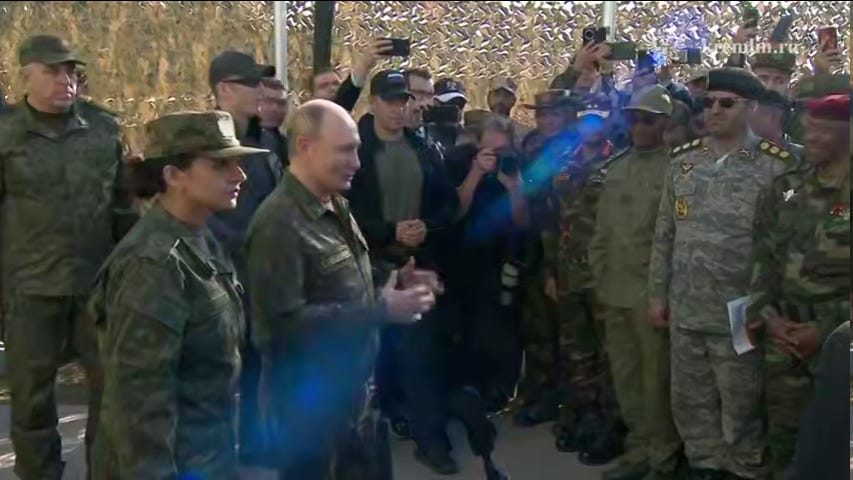Russian state media have confirmed Iran’s participation in Russia’s Zapad-2025 (i.e., west-2025) military exercise. While the core part of the military exercise was a bilateral Belarus-Russia affair held in Belarus and the Russian exclave of Kaliningrad, this year’s premier Russian military exercise was unusually expansive in geographic terms. It included, among other things, activities along Russia’s northern Arctic coastline. It also included activities held at Russian military training facilities deep inside Russian territory, which is to say, far from the Russia-Ukraine War. While the scope of Iranian participation in Zapad-2025 is not yet public knowledge, Iran’s participation is likely to have been limited to a presence at military training facilities deep inside Russian territory, such as the Mulino training area in Russia’s Nizhny Novgorod province, which is several hundred kilometers east of Moscow.
Iran is not the only country other than Belarus and Russia to participate in Zapad-2025—the presence of foreign military attaches as observers is customary and an altogether different matter than formal participation, however small and limited, in a military exercise such as Zapad-2025. It is worth noting that India is known to have sent a fairly large—that is, non-token—military contingent to actively participate in—not merely observe—Zapad-2025, specifically in the activities held at the training facilities deep inside Russian territory, such as Mulino.

One of the most notable and oft-overlooked characteristics of Iran’s military is how insular it is. Iranian military personnel have had very little exposure to any of their foreign counterparts since the 1979 Islamic Revolution that brought Iran’s American-aligned monarchy to an end. While military attaches represent Iran in many countries, very few Iranian military personnel train with their foreign counterparts, whether on foreign or Iranian territory, and the bilateral or multilateral activities that the Iranian military does occasionally participate in tend to be very performative, public relations-oriented events. There is a case to be made that Iranian military thinking and practices have, in most respects, stagnated as a result. Training events serve as conduits for the diffusion of lessons learned, including the hard-earned lessons that stem from combat experience and which are paid for in blood. The scope of Iranian participation in Zapad-2025 remains to be seen, as does the scope of military cooperation—beyond the now two-way transfer of armaments and the components thereof—between Iran and Russia going forward.

